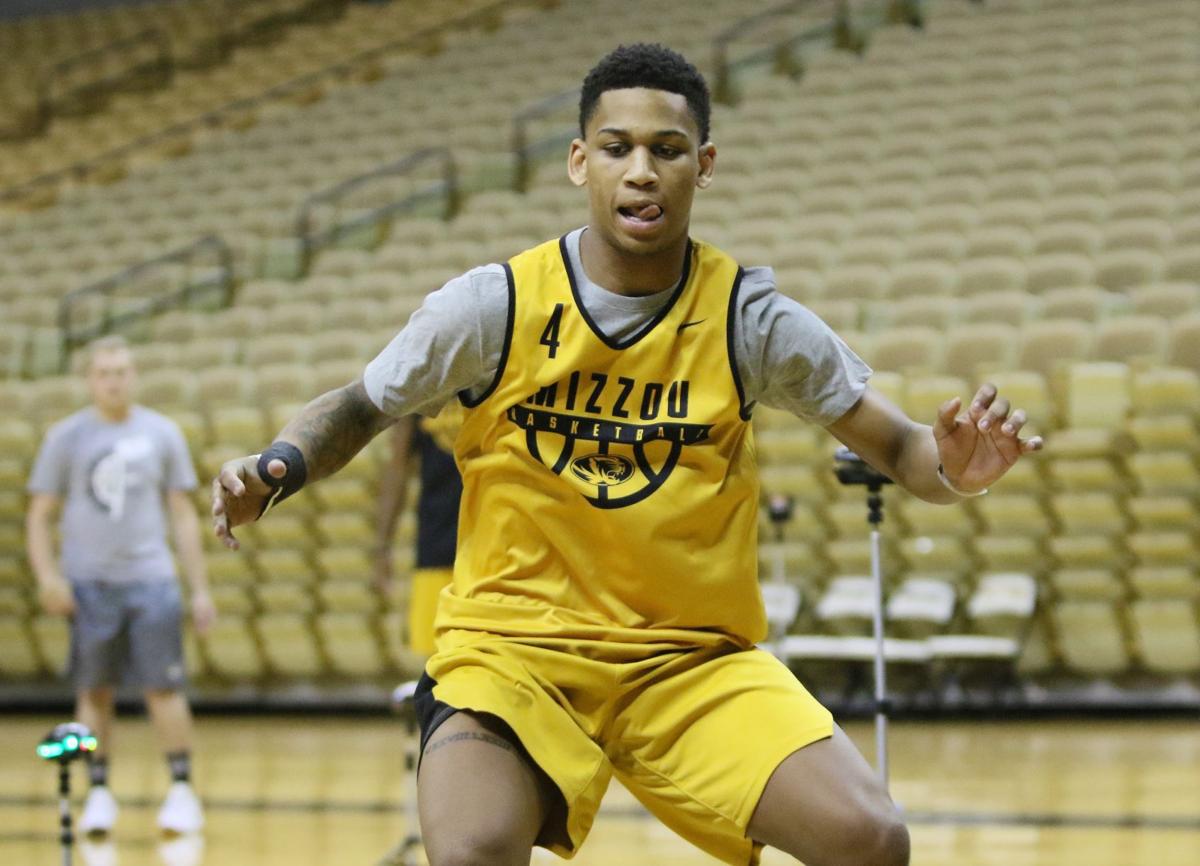BenFred: Harris could have been the man at Mizzou
The big news out of Mizzou today is the transfer of freshman point guard Blake Harris.
Dave Matter has the story, complete with reaction from Harris, right here.
This is somewhat surprising, but it should not be a complete and total shock.
Harris came to Mizzou to play with Michael Porter Jr. He followed MPJ to Washington, then followed MPJ to CoMo. Then Porter's bad back flared up and surgery sidelined him through the end of the season — until we hear differently. (Don't hold your breath.)
So there was some turbulence early.
Harris wanted to be the Tigers' primary point guard. Not just the starter, but the starter who logged the most minutes. He wanted to be the one with the ball in his hands when the game was on the line. (This is the mentality you want from a point guard.)
But Tigers coach Cuonzo Martin wasn't going to hand it to him. Harris was going to have to earn it. (This is the mentality you want from a coach.)
This situation happens every day on every court, field and rink across the country.
An up-and-comer desires more. A coach makes him earn it, on the coach's terms. Ideally, talent turns into production, the two win each other over, and the team is better off for it in the end.
Perhaps that would have happened in this case. Now we'll never know. Because after 14 games, Harris decided to search for greener pastures. (A review of his hop-around approach to his prep career suggests this should not have been a shock.)
No judgment here.
I don't knock players who transfer. Coaches can jump jobs as they see fit, and they actually get paid. Unpaid college athletes should have the same opportunity. Unlike their coaches, they have to sit out a year when they change teams. The handwringing about the transfer "crisis" is one of the most hypocritical issues in college sports, and that's saying something.
So, good luck to Harris.
But I've got a question for him.
Where is he going to go that offers a better opportunity than the one he had at Mizzou?
Harris (3.8 points per game, 3.1 assists per game) started nine of 14 games this season. He averaged 13.9 minutes per game.
In order to increase his impact both in minutes played and moments controlled, he simply had to outshine point-guard competitors Jordan Geist and Terrence Phillips to the point that he was the obvious choice. No offense to first-team all-scrappy Geist, or to Phillips, but that's relatively easy competition for an SEC program.
Harris' numbers didn't exactly scream that he was getting the short end of the stick.
His field-goal percentage (40.7) ranked second-worst on the team. He had missed each of the seven 3-pointers he attempted. He shot 69.2 percent from the free-throw line.
His assist-to-turnover ratio (1.83) was not remarkably better than that of Phillips (1.65) and Geist (1.57). If you look at points+assists+rebounds per 40 minutes, Geist (28.6) had made more of an impact than Harris (26.9).
Harris has the highest ceiling of the bunch. That was clear in the Braggin' Rights loss to Illinois, which looked then like a sign of things to come for the former four-star prospect.
Apparently it wasn't coming fast enough. Harris needed to force his coach's hand. Instead, he waved goodbye.
